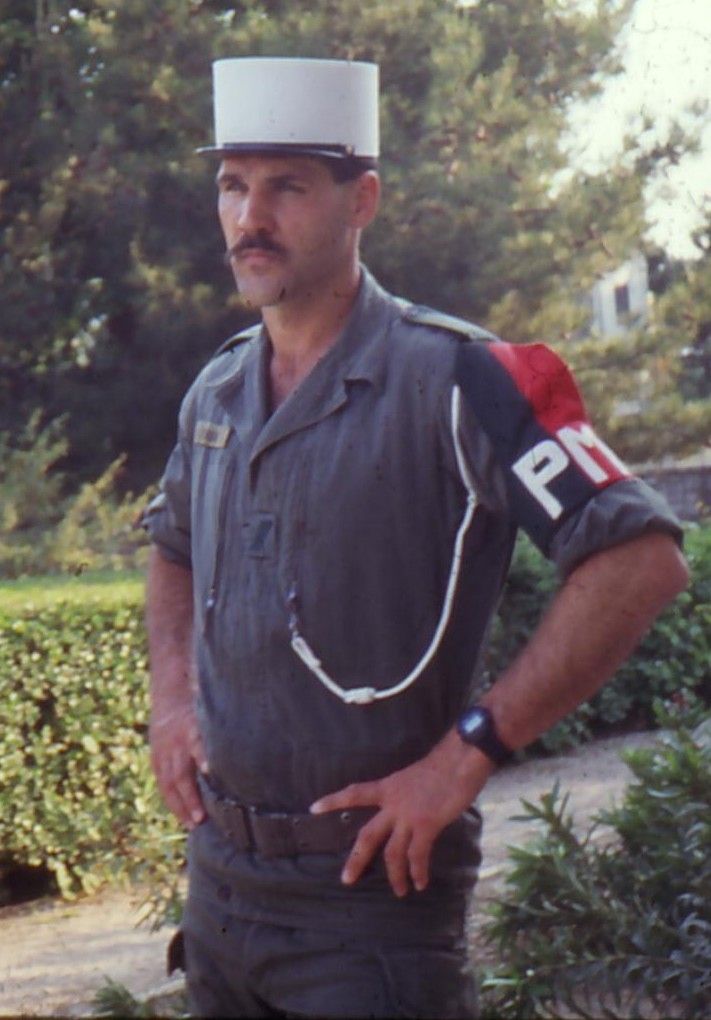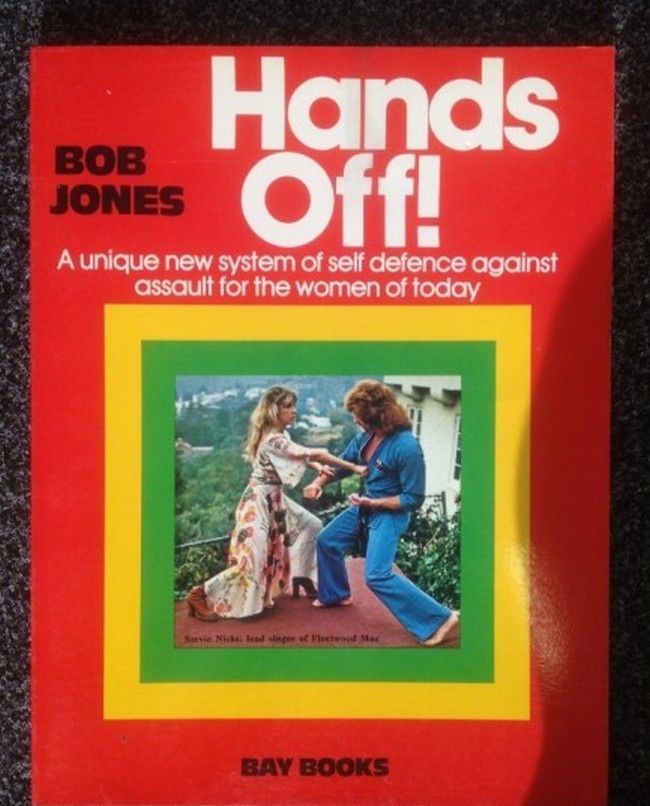DISCIPLINE
By
NICK HUGHES
As a former member of the French v Foreign Legion and an International Bodyguard, I've had the pleasure of seeing, and training, in dojo all over the world.
Obviously, due to all the styles ~ taught, and individual instructors' preferences, the standards in each of those dojo varied a great deal. However, in retrospect, the thing that struck me the most was the attitude towards discipline.
As Martial Artists, we are involved in studying or teaching an art that purports to instil discipline in its adherents. Now in some schools I saw that was very much the case, in fact discipline was so rigidly enforced that the students all moved around in reverent silence, speaking only in hushed tones, bowing at every opportunity and all looking like they feared a lightning bolt from the heavens lest they put a foot wrong. Others, however, were so far down the other end of the scale you wondered whether or not they were serious about practising the Martial Arts.
Witnessing those vast differences in attitude, and speaking to so many people with opposing ideas of what constitutes "discipline", prompted me to write this article.
There are in fact two types of discipline we need to consider: that which is enforced and- in my opinion, the most important -that which is within us, i.e. self-discipline.
Let me tell you a little story which, I feel, illustrates perfectly the two different types of discipline and why one is more important than the other.
In the Legion, as most of you have probably heard, the discipline is fairly severe. Rules had to be adhered to, and woe betide anyone who broke them as punishments were strict. The Regiment I was stationed at in North Africa was no exception. In my room there were seven other Legionnaires, apart from myself, and a Corporal in charge.
Now, in the eyes of the Legion, one of those soldiers was perfect; he was up 15 minutes early every morning, always immaculately turned out, uniform creased, boots shiny, his locker always arranged and all his gear was correctly stowed away. This same soldier never got drunk, never went to prison and was cited constantly by the cadre as an example we should all endeavour to follow.
Two beds along from this guy was another Legionnaire, only not a very shining example at all. This chap was constantly drunk, constantly late back to camp, often in prison, and always on report. His uniform could nearly walk itself, his boots were dirty and his locker was a shambles. He was, in fact, the antithesis of the ideal Legionnaire.
One day we all went on an exercise which included marching solidly for three days, which the Legion is wont to do, with various stops on the way to shoot. Funnily enough, "Mr. Perfect" started dragging his arse after about 20 miles of forced marching and couldn't keep up. He got so bad, in fact, that he spent the last two days of the exercise riding around in one of the trucks! As if this wasn't enough, whenever we stopped to shoot he could never hit the target more than two times out of ten.
The "slob", on the other hand, the bane of the Lieutenant's life, was right out front the whole time, despite vicious blisters and, whenever we shot, he scored the highest. Months after this exercise, when a fight broke out in the Capital between some of the lads from our Section and local troops, "Mr. Perfect's" bottle went and he did a 'runner'.
Later that same year the whole Regiment was placed on standby to go into action, due to the conflict between North and South Yemen. As members of the amphibious section, our job was going to involve taking high-speed raiding boats across the Gulf to rescue any European civilians caught up in the fighting. As it happened, we. never went, but I'll give you three guesses (and the last two don't count) as to who I wanted backing me in the advent of a firefight, and the rest of the squad felt exactly the same way.
The similarities here between the above story and the dojo are, I hope, plainly clear. I've been in dojo (and I'm not against all of the following!) where students have to bow upon entering and leaving the room, again when addressing higher ranks, again before class, during class and after. They answer every single direction of the sensei (teacher) with an emphatic "0os" and another bow and turn their backs when rearranging their gi. Ask one of them, or their sensei, why they're made to do this, and they'll say "discipline". Yet watch one of those students receive an accidental whack in class. Be it a bloody nose, split lip, kick in the groin, or a good shot in the solar plexus. ..everyone will stop sparring and rush across to make sure that the recipient of the ill-controlled blow is OK. Before class resumes a couple of senior students will normally be designated to assist the injured one to the bathroom to help him recover. I've even witnessed students leave a class in session to get a drink of water or to use the toilet. Oh, very correctly mind you -lots of bowing, lots of "discipline".
Now people will tell you differently, but how you train is how you'll react. That's exactly the reason you train. It follows logically, therefore, that your training should be as realistic as possible. If you're in the habit of stopping because you've accidentally been struck, then that is what you 'II do in an altercation, with disastrous results. The thugs you're up against will not all stop and rush to your aid at the first sign of blood. If you stop when you're out of breath, tired or you've ~ been swept to the floor, then you are) kidding yourself, because outside you ~ won't be able to, and nobody is going ~ to let you up off the floor.
That is what real discipline is about. ~ The ability to continue in the face of 10 adversity. In the dojo trained in (and none of us were especially hard when we started), you could have taken a 15-year-old black belt and smashed him in the face with a brick and he wouldn't have flinched or registered the pain. If anyone got hit during sparring, it was as if nothing had happened. If you got tired, you found it within yourself to keep going. If you got a cold, or injury, you still turned up to train. Try begging out of a gang attack because you've got the 'flu, or a broken toe!
 [This book was actually written by Nick while training in Karate in Australia]
[This book was actually written by Nick while training in Karate in Australia]Our 2nd dan grading consisted of thirty x 2-minute rounds of sparring with a fresh black belt every round. .. if you were still on your feet at the end of an hour-plus of non-stop sparring, you were considered a 2nd dan. I saw many guys go through that ordeal with their eyebrows and lips hanging by bits of skin. One of them, Geoff Else, a particularly fine example of internal fortitude, did his whole grading with two broken bones in his foot (an injury he received the evening before, kicking someone in the head while performing his duty on a night club door).
Another good example was a chap called Gordon Mitchell. He blocked a front kick badly; it went between the fingers of his hand and split the webbing down to mid-palm. While still fighting a particularly vicious 4th dan, Gordon unwrapped his belt, tied it round his hand, shoved the whole lot behind his back and finished the other twenty rounds.
The best example of all, though, is Ed Row. Eddie was one of my green belts when he lost his arm in a car accident. It happened out in the country as he went round a corner with his arm outside, hooked over the door. A truck coming from the opposite direction sideswiped Eddie and tore off his arm. The truck never stopped, and Eddie had to run three miles to the nearest house, where the woman - fortunately a former nursing sister - was able to administer first aid.
Six weeks later Eddie came back and did his brown belt grading, doing the fifty pushups that are part of the requirements, on his one good arm. He did the 100 for his black belt grading the same way, and his 2nd dan grading years later was a tour de force!
That's real discipline: Not wearing tee-shirts under your gi when cold; not kow-towing to someone who sets themselves up as a demi-god; nor bowing and scraping every five seconds; nor leaving the dojo floor for any reason during class. What sort of dojo do you train in? Is your discipline the veneer of "Mr. Perfect", or is it real, like Eddie's?
---------------
This DVD set on
French Foreign Legion Combatives is required watching by anyone interested in self protection.
